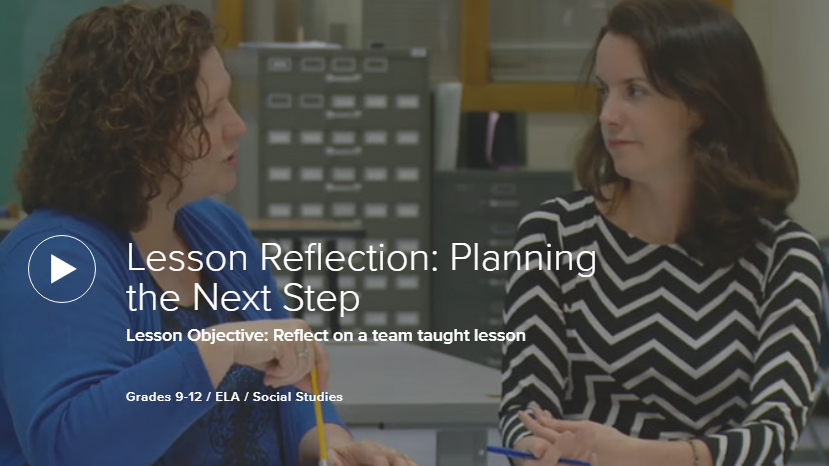What is Thoughtful Reflection?
Reflective learning is a practice in which individuals step back from their learning experience to develop critical thinking skills and improve future performance through experience analysis.
How do I facilitate thoughtful reflection?
The resources below offer advice on creative thinking and problem solving to instill and develop a growth mindset.
Learning Targets:
- I release control and empower my candidate(s) to drive the learning-focused conversation.
- I develop my coaching skills to implement paraphrasing and inquiry questions to deepen my candidate’s thinking.
- I focus on my candidate’s professional growth through just-in-time coaching and the induction activities.

Watch
- How the teachers reflect on the lesson they taught.
- How these reflections inform the next steps that they plan.
- How the teachers reflect on the work of individual students and make plans to include all students in discussions.
Consider
- What would it be like if reflective conversations with your candidate were like this conversation?
Reflective Questions
- What steps can I take to empower my candidate(s) to drive the learning-focused conversation?
- How can I strategically use the various types of paraphrasing?
- When do I focus on inquiry questions to deepen his/her thinking?
- How can I focus on my candidate’s professional growth as he/she progresses through the inquiries?
Supporting Research
Collins, A., Brown, J.S., & Newman, S.E. (1989). Cognitive apprenticeship: Teaching the crafts of reading, writing, and mathematics. In L.B. Resnick (Ed.), Knowing, learning, and instruction: Essays in honor of Robert Glaser (pp. 453-494). Hillsdale, NJ: Lawrence Erlbaum.
This article found that focus of the expert/novice interaction in a cognitive apprenticeship is on developing cognitive skills of reflection through discourse and application of knowledge.
Costa, A.L., & Garmston, R.J. (1994). Cognitive coaching: A foundation for renaissance schools. Norwood, MA: Christopher-Gordon Publisher tells us that coaching should focus on eliciting and examining the thoughts and decisions that a teacher makes in the context of teaching.




